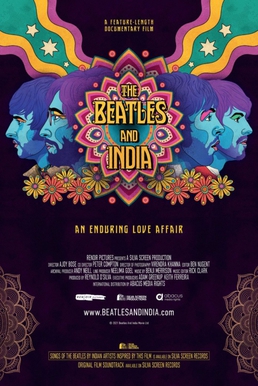The Natural Law Party (NLP) is a transnational party founded in 1992 on "the principles of Transcendental Meditation", the laws of nature, and their application to all levels of government. At its peak, it was active in up to 74 countries; it continues in India and at the state level in the United States. The party defines "natural law" as the organizing intelligence which governs the natural universe. The Natural Law Party advocates using the Transcendental Meditation technique and the TM-Sidhi program as tools to enliven natural law and reduce or eliminate problems in society.

Transcendental Meditation (TM) is a form of silent meditation developed by Maharishi Mahesh Yogi. The TM technique involves the silent repetition of a mantra or sound, and is practiced for 15–20 minutes twice per day. It is taught by certified teachers through a standard course of instruction, with a cost which varies by country and individual circumstance. According to the TM organization, it is a non-religious method that promotes relaxed awareness, stress relief, self-development, and higher states of consciousness. The technique has been variously described as both religious and non-religious.

Maharishi Mahesh Yogi was the creator of Transcendental Meditation (TM) and leader of the worldwide organization that has been characterized in multiple ways, including as a new religious movement and as non-religious. He became known as Maharishi and Yogi as an adult.
Fleur Adcock was a New Zealand poet and editor. Of English and Northern Irish ancestry, Adcock lived much of her life in England. She is well-represented in New Zealand poetry anthologies, was awarded an honorary doctorate of literature from Victoria University of Wellington, and was awarded an OBE in 1996 for her contribution to New Zealand literature. In 2008 she was made a Companion of the New Zealand Order of Merit, for services to literature.

The Transcendental Meditation movement (TM) are programs and organizations that promote the Transcendental Meditation technique founded by Maharishi Mahesh Yogi in India in the 1950s. The organization was estimated to have 900,000 participants in 1977, a million by the 1980s, and 5 million in more recent years.

"Dear Prudence" is a song by the English rock band the Beatles from their 1968 double album The Beatles. The song was written by John Lennon and credited to the Lennon–McCartney partnership. Written in Rishikesh during the group's trip to India in early 1968, it was inspired by actress Mia Farrow's sister, Prudence Farrow, who became obsessive about meditating while practising with Maharishi Mahesh Yogi. Her designated partners on the meditation course, Lennon and George Harrison, attempted to coax Farrow out of her seclusion, which led to Lennon writing the song.

Sir Raymond William Firth was an ethnologist from New Zealand. As a result of Firth's ethnographic work, actual behaviour of societies is separated from the idealized rules of behaviour within the particular society. He was a long serving professor of anthropology at the London School of Economics, and is considered to have singlehandedly created a form of British economic anthropology.

Geoffrey Hodson was an occultist, Theosophist, Co-Freemason, mystic, Liberal Catholic priest, philosopher and esotericist, and a leading light for over 70 years in the Theosophical Society.
David W. Orme-Johnson is a former professor of psychology at Maharishi University of Management in Fairfield, Iowa. He is the author of over 100 papers investigating the effects of the Transcendental Meditation technique.

In February 1968, the English rock band the Beatles travelled to Rishikesh in northern India to take part in a Transcendental Meditation (TM) training course at the ashram of Maharishi Mahesh Yogi. The visit followed the Beatles' denunciation of drugs in favour of TM and received widespread media attention. The band's interest in the Maharishi's teachings was led by George Harrison's commitment, and it changed Western attitudes about Indian spirituality and encouraged the study of TM. The visit was also the most productive period for the Beatles' songwriting.

Tony Nader is a Lebanese neuroscientist, researcher, university president, author and leader of the Transcendental Meditation movement. He has a medical degree in internal medicine, received his Ph.D. from Massachusetts Institute of Technology and worked as a clinical and research fellow at a teaching hospital of Harvard Medical School.
The History of Transcendental Meditation (TM) and the Transcendental Meditation movement originated with Maharishi Mahesh Yogi, founder of the organization, and continues beyond his death (2008). In 1955, the Maharishi began publicly teaching a traditional meditation technique learned from his master Brahmananda Saraswati, which he called Transcendental Deep Meditation, and later renamed Transcendental Meditation.
The reception of Hinduism in the Western world began in the 19th century, at first at an academic level of religious studies and antiquarian interest in Sanskrit.
The Transcendental Meditation (TM) technique is that associated with Transcendental Meditation, developed by the Indian spiritual figure Maharishi Mahesh Yogi. It uses a private mantra and is practised for 20 minutes twice per day while sitting comfortably with closed eyes. TM instruction encourages students to be not alarmed by random thoughts which arise and to easily return to the mantra once aware of them.
Ralph O'Reilly Piddington was a New Zealand psychologist, anthropologist and university professor.
Transcendental Meditation in education is the application of the Transcendental Meditation technique in an educational setting or institution. These educational programs and institutions have been founded in the US, United Kingdom, Australia, India, Africa and Japan. The Transcendental Meditation technique became popular with students in the 1960s and by the early 1970s centers for the Students International Meditation Society were established at a thousand campuses in the US with similar growth occurring in Germany, Canada and Britain. The Maharishi International University was established in 1973 in the US and began offering accredited, degree programs. In 1977 courses in Transcendental Meditation and the Science of Creative Intelligence (SCI) were legally prohibited from New Jersey (USA) public high schools on religious grounds by virtue of the Establishment Clause of the First Amendment. This "dismantled" the TM program's use of government funding in U.S. public schools "but did not constitute a negative evaluation of the program itself". Since 1979, schools that incorporate the Transcendental Meditation technique using private, non-governmental funding have been reported in the US, South America, Southeast Asia, Northern Ireland, South Africa and Israel.
In late August 1967, the English rock band the Beatles attended a seminar on Transcendental Meditation (TM) held by TM creator Maharishi Mahesh Yogi at Bangor Normal College in Bangor, Wales. The visit attracted international publicity for Transcendental Meditation and presented the 1960s youth movement with an alternative to psychedelic drugs as a means to attaining higher consciousness. The Beatles' endorsement of the technique followed the band's incorporation of Indian musical and philosophical influences in their work, and was initiated by George Harrison's disillusionment with his visit to San Francisco's Haight-Ashbury district in early August.
Beatles Ashram, also known as Chaurasi Kutia, is an ashram close to the north Indian city of Rishikesh in the state of Uttarakhand. It is located on the eastern bank of the Ganges river, opposite the Muni Ki Reti area of Rishikesh, in the foothills of the Himalayas. During the 1960s and 1970s, as the International Academy of Meditation, it was the training centre for students of Maharishi Mahesh Yogi, who devised the Transcendental Meditation technique. The ashram gained international attention between February and April 1968 when the English rock band the Beatles studied meditation there, along with celebrities such as Donovan, Mia Farrow and Mike Love. It was the setting for the band's most productive period as songwriters, where they composed most of the songs for their self-titled double album, also known as the "White Album".

In May 1968, the American rock band the Beach Boys undertook a concert tour of the United States with Maharishi Mahesh Yogi, their Indian meditation guru. The tour preceded the release of the Beach Boys' Friends album, which similarly reflected the influence of the Maharishi's Transcendental Meditation (TM) technique on the band, and was a commercial and critical failure. The program comprised a set of songs by the Beach Boys, followed by a lecture from the Maharishi on the benefits of meditation. Twenty-nine concerts were originally scheduled, many of them in college venues, but the venture was abandoned after three days of low ticket sales and hostile audience reaction to the Maharishi's segment. The guru's commitment to making a documentary film about himself, for Four Star Television, was cited as a further impediment.

The Beatles and India is a 2021 documentary film directed by Indian author and political journalist Ajoy Bose. It covers the Beatles' immersion in Indian culture and philosophy during the 1960s and the band's influence on India.







